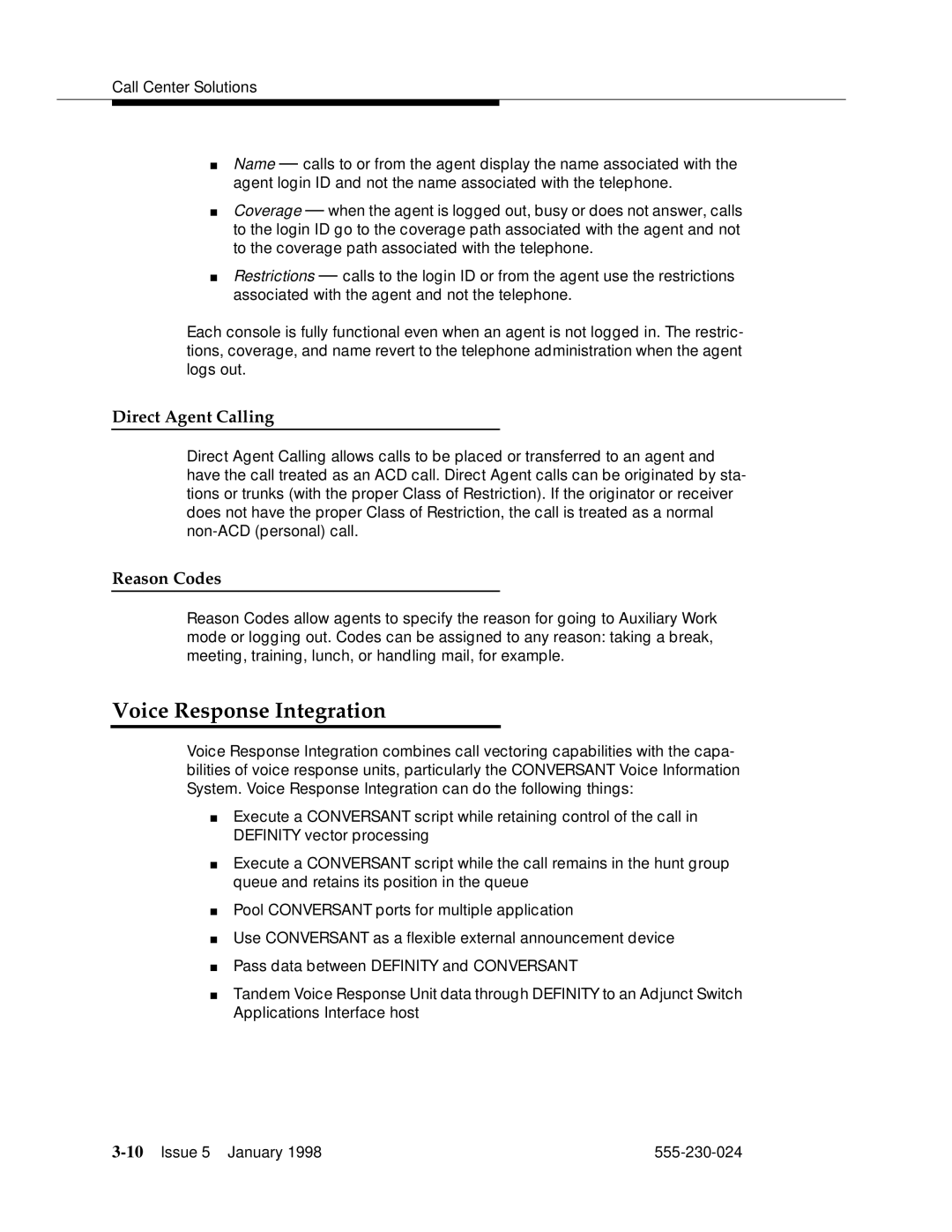
Call Center Solutions
■Name — calls to or from the agent display the name associated with the agent login ID and not the name associated with the telephone.
■Coverage — when the agent is logged out, busy or does not answer, calls to the login ID go to the coverage path associated with the agent and not to the coverage path associated with the telephone.
■Restrictions — calls to the login ID or from the agent use the restrictions associated with the agent and not the telephone.
Each console is fully functional even when an agent is not logged in. The restric- tions, coverage, and name revert to the telephone administration when the agent logs out.
Direct Agent Calling
Direct Agent Calling allows calls to be placed or transferred to an agent and have the call treated as an ACD call. Direct Agent calls can be originated by sta- tions or trunks (with the proper Class of Restriction). If the originator or receiver does not have the proper Class of Restriction, the call is treated as a normal
Reason Codes
Reason Codes allow agents to specify the reason for going to Auxiliary Work mode or logging out. Codes can be assigned to any reason: taking a break, meeting, training, lunch, or handling mail, for example.
Voice Response Integration
Voice Response Integration combines call vectoring capabilities with the capa- bilities of voice response units, particularly the CONVERSANT Voice Information System. Voice Response Integration can do the following things:
■Execute a CONVERSANT script while retaining control of the call in DEFINITY vector processing
■Execute a CONVERSANT script while the call remains in the hunt group queue and retains its position in the queue
■Pool CONVERSANT ports for multiple application
■Use CONVERSANT as a flexible external announcement device
■Pass data between DEFINITY and CONVERSANT
■Tandem Voice Response Unit data through DEFINITY to an Adjunct Switch Applications Interface host
